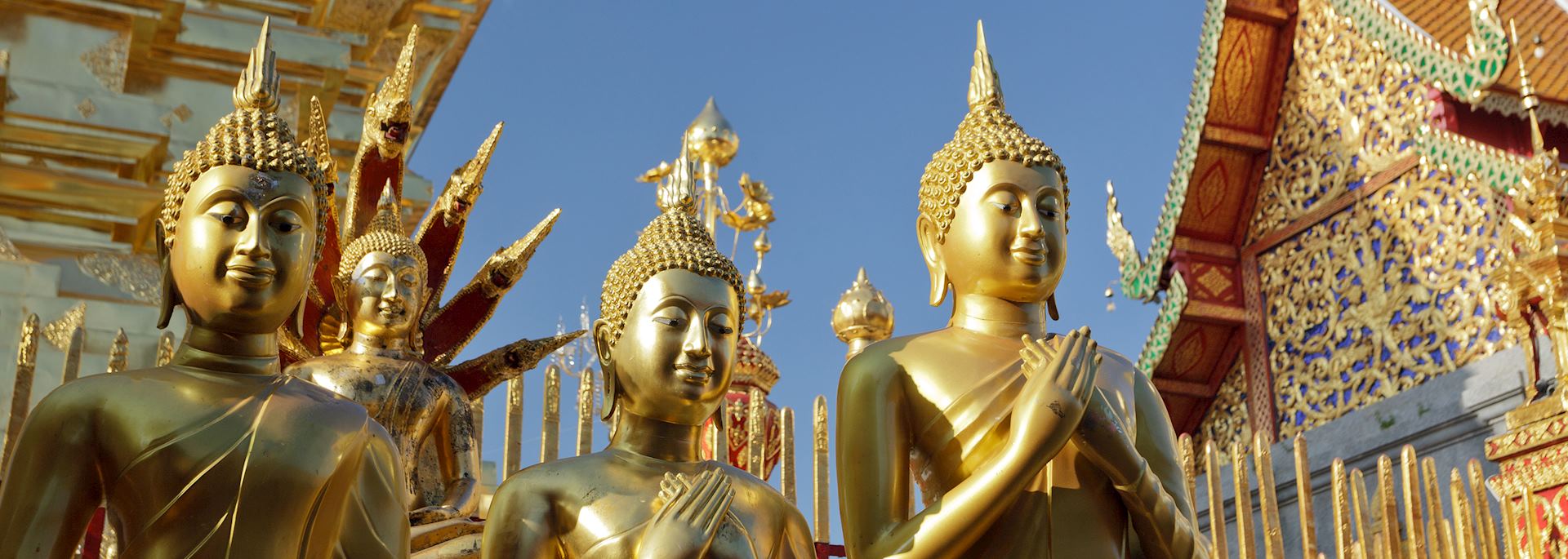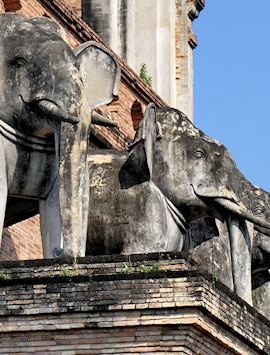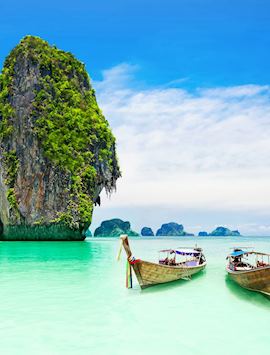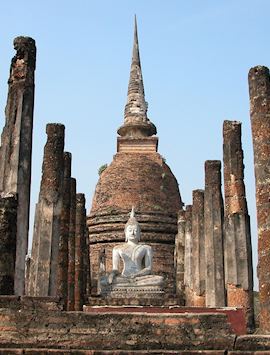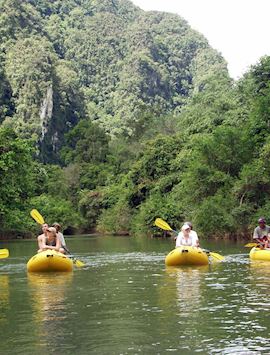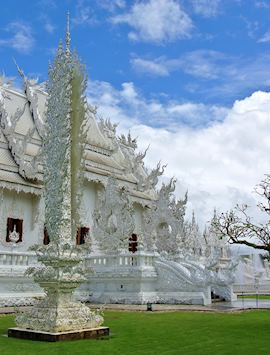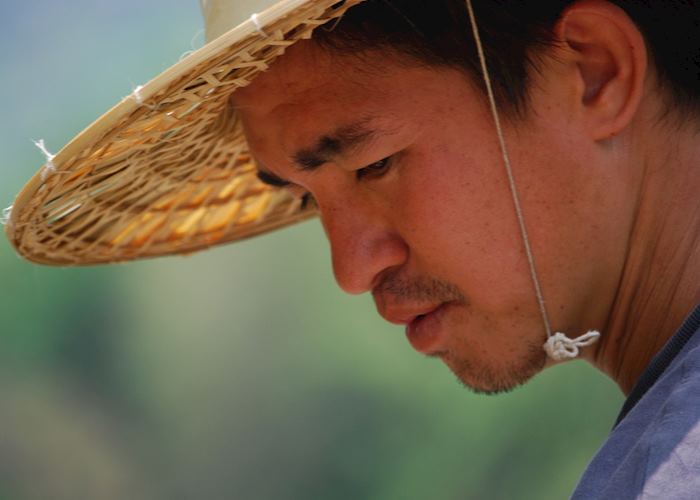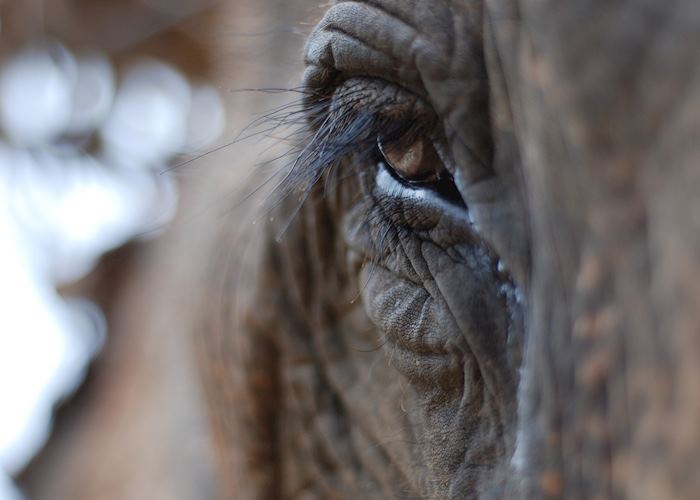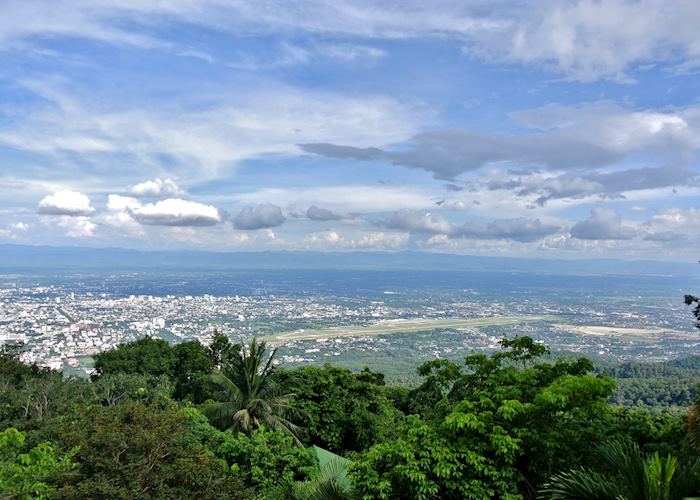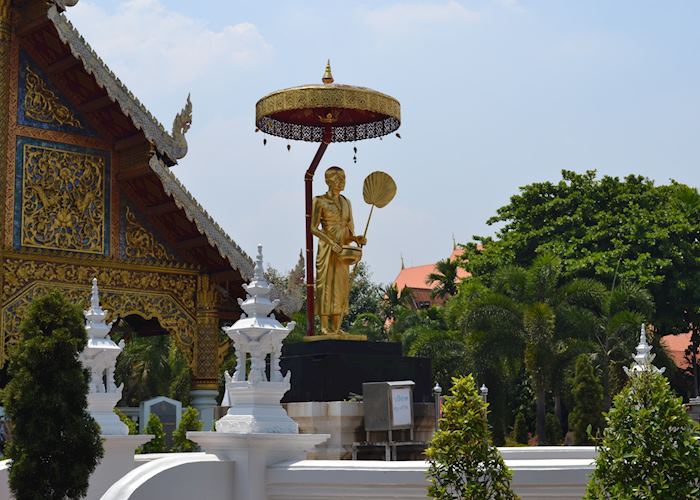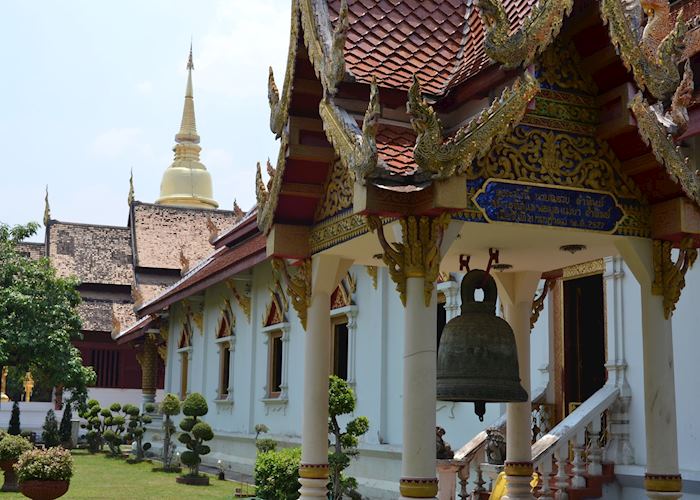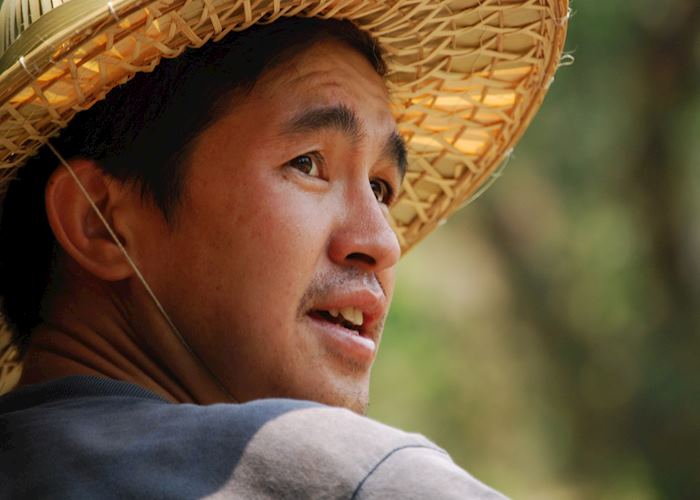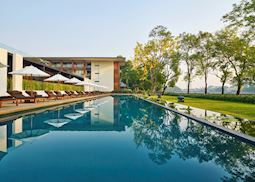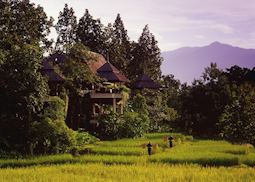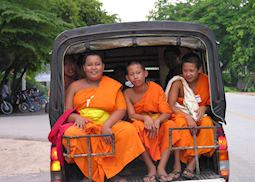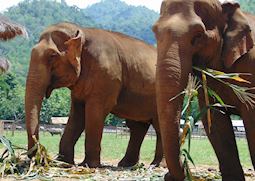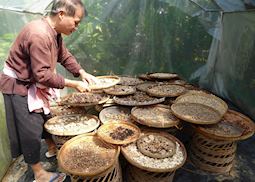Jump to:
Thailand’s second largest city, Chiang Mai is a carefree contrast to Bangkok. Locked between the country’s northern hills, the city is surrounded by jungle on all sides. Visitors to Chiang Mai tend to linger here, learning about the region’s aromatic food, relaxing in the laid-back hotels and walking through temple ruins.
Once the capital of the 13th-century northern Thai Lanna Kingdom, Chiang Mai was originally a walled city, known for its markets and monasteries. The modern city has long since burst beyond the old walls, but you’ll still find the streets graced with barefoot monks, street vendors and flourishing markets.
Thailand specialist TaylorChiang Mai is one of the destinations in Thailand that I most anticipate returning to because of its temples, walkable old city, developing arts scene, and distinct, tasty local cuisine (especially khao soi, a curried noodle soup).
Things to see and do in Chiang Mai
Visit Wat Phra That Doi Suthep
 Known locally as Doi Suthep, this temple and its legends are considered among the most important in Thailand. According to the tale, a precious relic, believed to be a piece of Buddha’s shoulder bone, was tied to the back of a sacred white elephant. After roaming Chiang Mai’s hills, the elephant lay down and died atop Mount Suthep. The golden shrine of Wat Phra That Doi Suthep was built on the same spot to house the heirloom.
Known locally as Doi Suthep, this temple and its legends are considered among the most important in Thailand. According to the tale, a precious relic, believed to be a piece of Buddha’s shoulder bone, was tied to the back of a sacred white elephant. After roaming Chiang Mai’s hills, the elephant lay down and died atop Mount Suthep. The golden shrine of Wat Phra That Doi Suthep was built on the same spot to house the heirloom.
Pilgrims earn Buddhist virtue by climbing a 306-step staircase up to the temple, which is flanked by two mirror-encrusted serpents (there’s also a lift). The terrace at the top is covered with small shrines, gardens and breadfruit trees. The views right across Chiang Mai are best appreciated in the fading light of late afternoon, when accompanied by the sound of pilgrims ringing bells set around the base of the temple. You’re also encouraged to hit one of the world’s largest gongs.
Cycle the ruins of Wiang Kum Kam
Far more peaceful than the well-preserved ancient capitals of Ayutthaya or Sukhothai, the ruins of Wiang Kum Kam remained hidden underground until recent excavations. The 13th-century capital of Lanna was abandoned due to flooding. Located 5 km (3 miles) south of Chiang Mai, the ruins lie in a sleepy rural setting along the banks of the Mae Ping River.
The lanes that meander through the ruins are ideal for cycling along — and you’re unlikely to see anyone else. The full history of the site is still uncertain, but the huge plinths and stupas that remain give an idea of its importance. More than 1,300 artefacts were found during its unearthing, some of which are on show in a small visitor centre nearby.
Haggle for a bargain in Chiang Mai’s night bazaar
Chiang Mai began as a market town, a convenient stopping point on the original trade route from China to Myanmar. Markets are still an important part of the community, with bazaars scattered across the city. The Chiang Mai night bazaar is the focal point — open seven nights a week until the small hours.
Located to the east of the city walls, it’s difficult to miss the bazaar’s bright lights, music and wafts of tod mun (fried fish cakes). Stalls around the outskirts of the market sell plastic sunglasses and questionable designer goods, but stroll further in and you’ll find antiques and swathes of screen-printed fabrics. Hill tribe traders bring traditional goods to sell, including organic coffee and hand-woven baskets. When shopping, bargaining for a good price is expected (and best achieved with a dose of good humour and some patience).
Learn Thai cookery with a local family
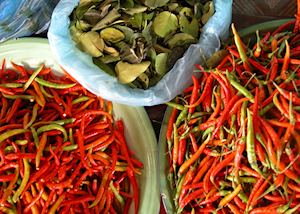 Mr Prapat and his family live in a residential area of Chiang Mai, surrounded by their well-tended garden. Spending a day cooking with them, you’ll start to appreciate the subtle nuances of Thai food. Helped by one of the family, you’ll begin your lesson by picking fresh chillies and basil leaves, and foraging for cilantro root. Meanwhile, the rest of the family — all four generations — begin to prepare the rest of the ingredients.
Mr Prapat and his family live in a residential area of Chiang Mai, surrounded by their well-tended garden. Spending a day cooking with them, you’ll start to appreciate the subtle nuances of Thai food. Helped by one of the family, you’ll begin your lesson by picking fresh chillies and basil leaves, and foraging for cilantro root. Meanwhile, the rest of the family — all four generations — begin to prepare the rest of the ingredients.
You’ll then be patiently coached through preparing a number of dishes, pounding the fragrant curry pastes and balancing the delicate salty and sweet tastes. Dishes are eaten around the family dining table, accompanied by fresh watermelon juice or coconut water.
Visit the Elephant Nature Park
Thailand’s Asian elephant population is in steep decline, threatened by hunting, habitat loss and poor working conditions. The Elephant Nature Park was started in 1990 to improve the lives of working elephants and provide them with emergency medical treatment. The foundation has since taken in a number of neglected working elephants, giving them space to roam while caring for their ongoing medical needs.
On arrival, you’ll be shown around the site before settling down to watch the elephants grazing, playing and interacting — just as they would in the wild. You have the opportunity to observe the elephants. During lunch you can join the park’s specialists to learn about the elephants’ biology and psychology. The day finishes with the chance to help bathe the elephants in the local river.
Best time to visit Chiang Mai
From November to February, Chiang Mai enjoys comfortable temperatures and clear skies. The days reach 25°C (77°F) with cooler evenings. March is best avoided as rural villages tend to burn their crops before the higher temperatures arrive in April. The monsoon rains continue until September. If you’re happy to see the occasional rain shower, October is an excellent-value month to travel, when Chiang Mai is surrounded by lush greenery.
Festivals, events and seasonal reasons to visit
- The Chiang Mai Flower Festival is celebrated over the first weekend of February. Intricate chrysanthemum-covered floats are paraded down the streets, accompanied by traditional dancing and music.
- In November, Chiang Mai celebrates Yi Peng, the festival of light, as the city’s own version of the nationwide Loy Krathong Festival. Thousands of khom loy (floating lanterns) are released into the night sky, said to carry misfortune away.
who's been there
-
01993 838 92501993 838 115
- Make an enquiry
Suggested itineraries featuring Chiang Mai
Our itineraries will give you suggestions for what is possible when you travel in Chiang Mai, and they showcase routes we know work particularly well. Treat them as inspiration, because your trip will be created uniquely by one of our specialists.
Places near Chiang Mai
- Pai 53 miles away
- Mae Hong Son 76 miles away
- Doi Angkhang 78 miles away
- Fang 80 miles away
- Chiang Rai 95 miles away
- Nan 118 miles away
- The Golden Triangle 129 miles away
- Sukhothai 136 miles away
- Loei Province 202 miles away
- Nong Khai 255 miles away
- Udon Thani 269 miles away
- Isaan 279 miles away
Photos of Chiang Mai
Accommodation choices for Chiang Mai
We've selected a range of accommodation options for when you visit Chiang Mai. Our choices usually come recommended for their character, facilities and service or location. Our specialists always aim to suggest properties that match your preferences.
-
![Rajah Brooke Suite, 137 Pillars House, Chiang Mai]()
137 Pillars House
Chiang Mai -
![Swimming pool]()
Anantara Chiang Mai Resort & Spa
Chiang Mai -
![The Four Seasons, Chiang Mai]()
Four Seasons Resort Chiang Mai
Chiang Mai -
![Lisu Lodge, Chiang Mai]() Responsible ChoiceWe've hand-selected a range of tours and stays across the world that go above and beyond to be a force for good by supporting local businesses, educating staff, challenging local norms, or promoting conservation and biodiversity efforts. Your Responsible Choice helps increase the positive impact of your trip.
Responsible ChoiceWe've hand-selected a range of tours and stays across the world that go above and beyond to be a force for good by supporting local businesses, educating staff, challenging local norms, or promoting conservation and biodiversity efforts. Your Responsible Choice helps increase the positive impact of your trip.Lisu Lodge
Chiang Mai -
![Yaang Come Village, Chiang Mai]()
Yaang Come Village
Chiang Mai -
![Amata Lanna, Chiang Mai]()
Amata Lanna
Chiang Mai -
![Rachamankha, Chiang Mai]()
Rachamankha
Chiang Mai -
![Na Nirand Boutique Hotel]()
Na Nirand
Chiang Mai
Ideas for experiencing Chiang Mai
Our specialists seek out authentic ways to get to know the places that could feature in your trip. These activities reflect some of the experiences they've most enjoyed while visiting Chiang Mai, and which use the best local guides.
-
Chiang Mai city safari ![Young monks travelling by songthaew, Chiang Mai]()
Chiang Mai city safari
Chiang Mai city safari
This one day tour will take you to Chiang Mai's most popular sites but will also give you a true flavour of daily life in the city. See the old trader community of Wat Gatekaram, markets, temples and a vast array of unique 'street life'. Explore ancient ruined temples by bicycle, before boarding a long-tail boat on the Mae Ping River. End the day with a tuk-tuk ride to Warorot Market to join the bustle of locals as they buy their fresh food and spices.
View details -
See elephants at the Elephant Nature Park ![Day trip to the Elephant Nature Foundation, Chiang Mai]()
See elephants at the Elephant Nature Park
See elephants at the Elephant Nature Park
The Elephant Nature Park is a non-profit organisation that advocates and acts on behalf of rights for elephants in Thailand. The park offers visitors a rare experience to get involved with the elephants from an educational perspective.
View details -
Lisu cultural experience in Chiang Mai province ![Grounds of Lisu Lodge]()
Lisu cultural experience in Chiang Mai province
Lisu cultural experience in Chiang Mai province
Get to know the culture of the Lisu people in a day of activities hosted by the community-run Lisu Lodge. Enjoy a bike ride through the rice terraces, raft beside emerald forests, try tea harvesting, and learn about traditional customs at a local village.
View details -
Elephant experience at ChangChill Elephant Sanctuary ![Asian elephant, Thailand]()
Elephant experience at ChangChill Elephant Sanctuary
Elephant experience at ChangChill Elephant Sanctuary
Enjoy an ethical elephant experience at ChangChill sanctuary, where you’ll spend the day with former working elephants. Learn their individual stories as you watch them forage in the forest, play in the mud pit, and chow down on food you’ve prepared for them.
View details -
Thai home life & cooking experience ![Mr Prapat explaining the herbs in his garden]()
Thai home life & cooking experience
Thai home life & cooking experience
Learn how to cook like a local at a Thai home near Chiang Mai. You’ll spend the day with your host family, listening to their stories and plucking fresh produce from the garden, before turning it into a feast under their careful guidance.
View details

